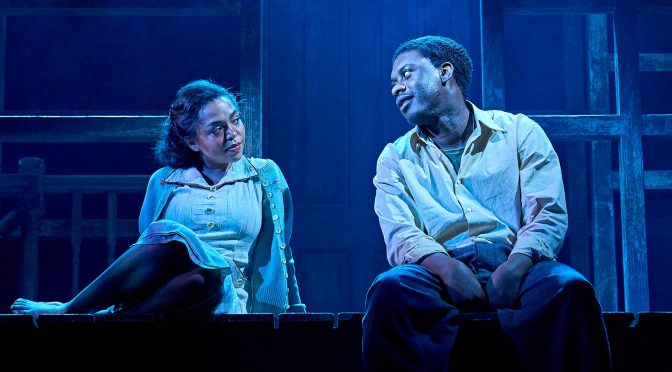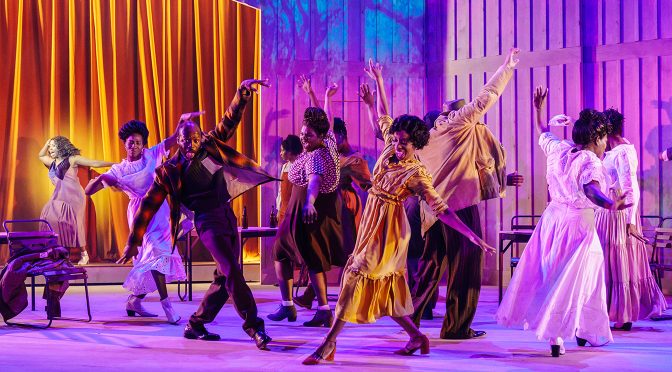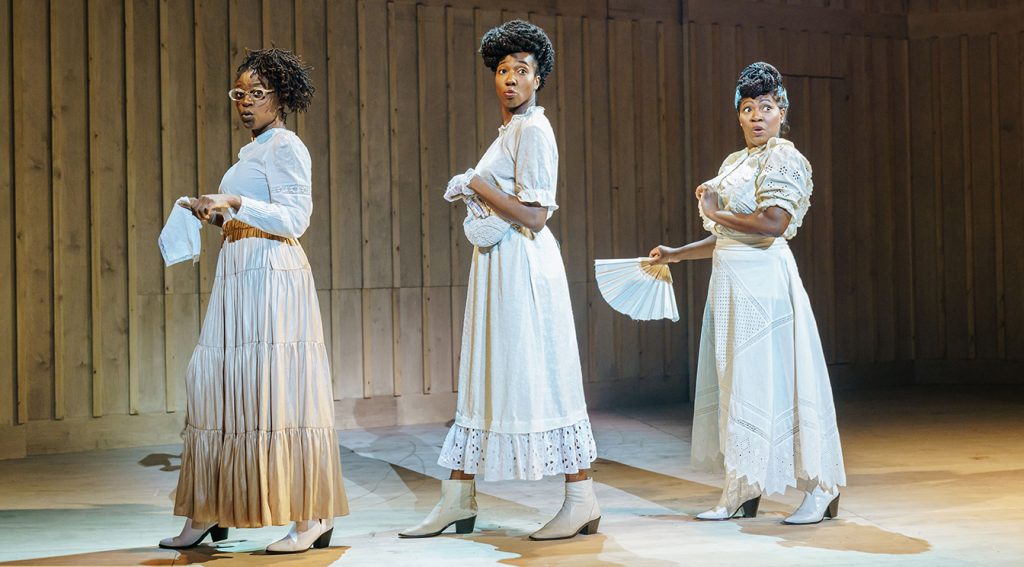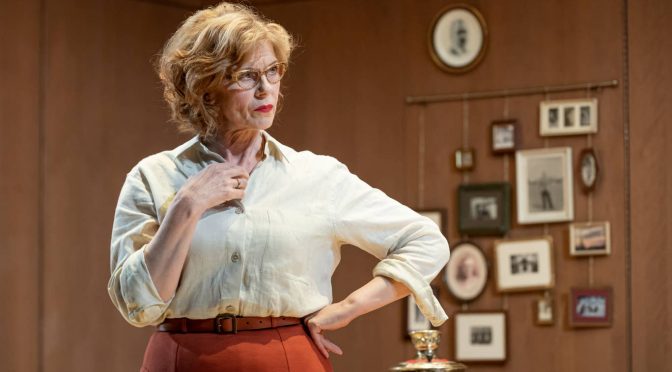Focusing on an African American soldier and a mixed race family in Cardiff provides a new take on World War II in Diana Nneka Atuona’s new play. Behind this interesting story, the piece is a traditional affair – well-crafted and carefully observed – that is a tidy drama and a gorgeous love story.
GI Nate is on the run, providing excitement, and it’s no plot spoiler to say he is the victim of prejudice. But what’s important is what he runs into: a boarding house with no colour bar and a romance with young Connie. The roles make impressive stage debuts for Samuel Adewunmi and Rita Bernard-Shaw with characters whose instant attraction and innocent courtship is sweet.
The play is full of heart-warming relationships that centre around Connie’s mother, a powerful matriarch, performed by Sarah Parish with consummate skill. As funny as she is formidable, and ferociously protective of her daughters, she is a sympathetic figure. How hard it must be to raise two mixed race children at the time is never overstated, a powerful move on Atuona’s part.
Along with her younger daughter and lodgers, who are all satisfying characters, this little idyll is under threat from the American Military Police. There are big debates here with plenty of perspectives. And maybe some caricatures (the Police seem dull next to characters we’ve come to admire). Importantly, Nate’s actions aren’t glossed over.
There is a lot of action – a director less skilled than Tinuke Craig could make a mess – that builds nicely. The second act provides more nuance in each character, more intergenerational conflict and a realistic yet inspiring finale. Random acts of kindness and cruelty that are deftly handled make the piece involving and interesting throughout. Excellent work all-round.
Until 25 March 2023
Photo by Manuel Harlan





